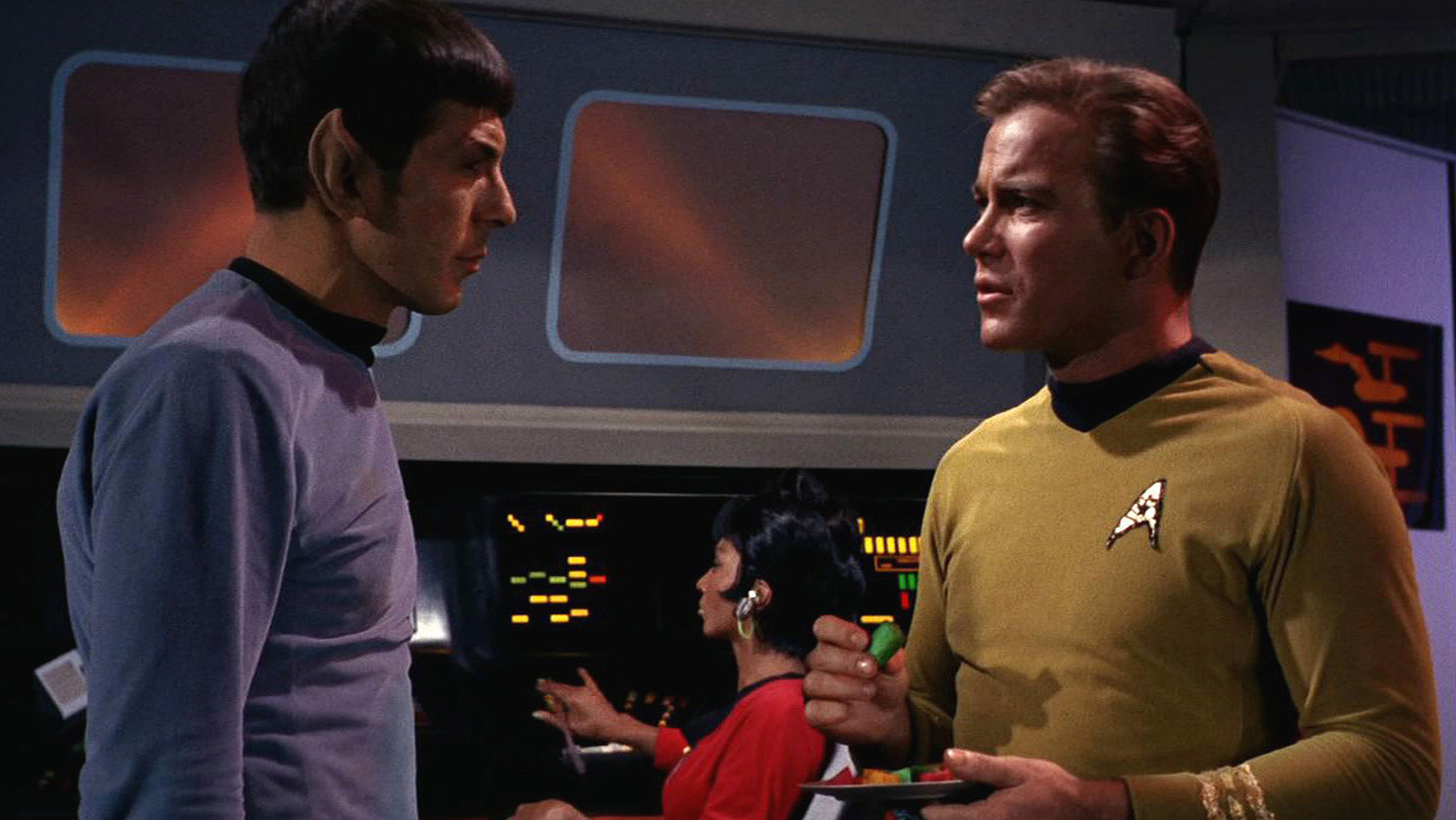William Shatner's 'Star Trek' Comments Spark Controversy: Is 'Modern Trek' Disrespecting Gene Roddenberry's Vision?
William Shatner, the iconic actor who portrayed Captain Kirk in the original 'Star Trek' series, recently sparked controversy with comments about the modern iterations of the franchise. In an interview, Shatner expressed his belief that Gene Roddenberry, the creator of 'Star Trek,' would be disappointed with how the series has evolved in recent years, saying that Roddenberry would 'turn in his grave' over the changes.
Shatner's comments have ignited a debate among fans and critics alike about the evolution of 'Star Trek' and its faithfulness to Roddenberry's original vision. While some agree with Shatner's assessment, arguing that modern 'Star Trek' has strayed too far from Roddenberry's ideals, others believe that the franchise has adapted and grown in ways that reflect the changing times and remain true to the spirit of its creator.
The Evolution of 'Star Trek': A Journey Through Time and Themes
'Star Trek' has been a cultural phenomenon for over 50 years, its enduring legacy rooted in its exploration of themes of social justice, diversity, and the potential of humanity. From the original series, which premiered in 1966, to the current 'Star Trek: Picard' and 'Star Trek: Discovery,' the franchise has undergone significant transformations, both in its narrative and its visual style.
The Original Vision: A Universe of Hope and Exploration
Roddenberry's vision for 'Star Trek' was rooted in his belief in the potential for humanity to overcome its differences and achieve greatness. He envisioned a future where humans had transcended their petty conflicts and embraced a spirit of cooperation and exploration. 'Star Trek' was, in many ways, a utopian vision of a future where humanity had finally realized its potential. The series' diverse cast, which included a Black female officer and a Japanese helmsman, was a groundbreaking departure from the prevailing racial dynamics of the 1960s.
Modern 'Star Trek': Embracing Complexity and Addressing Contemporary Issues
Modern 'Star Trek' series have expanded upon these themes, tackling contemporary issues like climate change, inequality, and racial injustice. While the series have retained the core elements of 'Star Trek'—space exploration, advanced technology, and a commitment to social justice—they have also taken a more nuanced approach to complex themes, reflecting the changing times and societal values.
For example, 'Star Trek: Discovery' has addressed issues of sexual orientation and gender identity, while 'Star Trek: Picard' has explored themes of grief, loss, and the search for meaning in a rapidly changing world. These series have been praised for their willingness to tackle difficult topics and their commitment to representation, showcasing a more diverse cast of characters than ever before.
The Debate: Staying True to Roddenberry's Vision or Embracing the Future?
The debate about the evolution of 'Star Trek' centers around the question of how closely modern series should adhere to Roddenberry's original vision. Some fans argue that 'Star Trek' has lost its way, sacrificing its utopian ideals in favor of darker, more cynical narratives. They contend that the franchise has strayed too far from Roddenberry's original vision, which emphasized hope and optimism.
Others believe that 'Star Trek' must evolve to remain relevant and engaging. They argue that the franchise's enduring success is a testament to its ability to adapt to the changing times and address the issues that matter most to audiences today. These fans believe that 'Star Trek' should continue to push boundaries, explore new ideas, and challenge viewers to think critically about the world around them.
Shatner's Comments: A Reflection of the Ongoing Debate
Shatner's comments about modern 'Star Trek' reflect this ongoing debate. While he acknowledges the franchise's enduring popularity, he expresses concern about the direction it has taken in recent years. He believes that modern 'Star Trek' has strayed too far from Roddenberry's original vision, which emphasized optimism and hope. Shatner believes that 'Star Trek' has become more cynical and pessimistic, losing sight of its core values.
However, Shatner's comments have also been met with criticism from some fans and critics, who believe that he is out of touch with the modern evolution of the franchise. They argue that 'Star Trek' has continued to address issues of social justice and explore new ideas in a way that reflects the world today. These fans believe that 'Star Trek' has remained true to Roddenberry's spirit, while also embracing the changing times.
'Star Trek' for the 21st Century: Navigating a Complex World
The debate about the evolution of 'Star Trek' is likely to continue for years to come. It raises important questions about the legacy of cultural icons and the role of art in reflecting and shaping society. Ultimately, 'Star Trek' has always been a reflection of its time, and its enduring appeal is a testament to its ability to connect with audiences on a deep and meaningful level. The franchise's journey, from its optimistic beginnings to its more nuanced and complex present, highlights the challenges and opportunities of navigating a changing world. 'Star Trek' has always been a vehicle for exploring the human condition, and it is clear that its story is far from over.
It remains to be seen how 'Star Trek' will continue to evolve in the years to come. But one thing is certain: the franchise will continue to inspire conversations about the future of humanity, the nature of progress, and the power of imagination.
Star Trek: A Legacy of Innovation and Inspiration
'Star Trek' has left an indelible mark on popular culture, inspiring generations of fans and influencing everything from technology to fashion. Its enduring appeal is rooted in its ability to entertain, educate, and challenge viewers to think critically about the world around them. 'Star Trek' has always been a vehicle for exploring the human condition, and its legacy continues to inspire and captivate audiences worldwide.

















